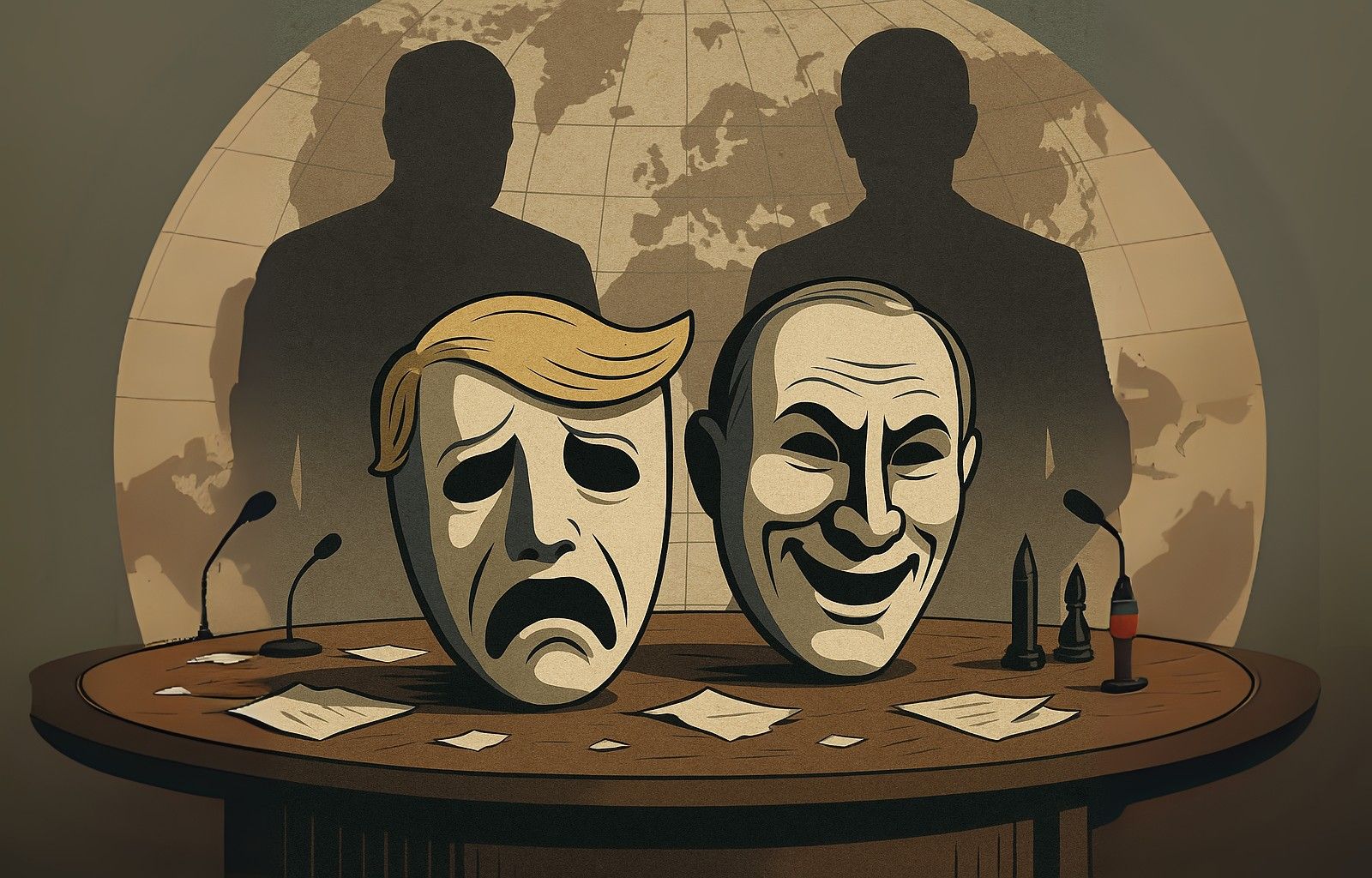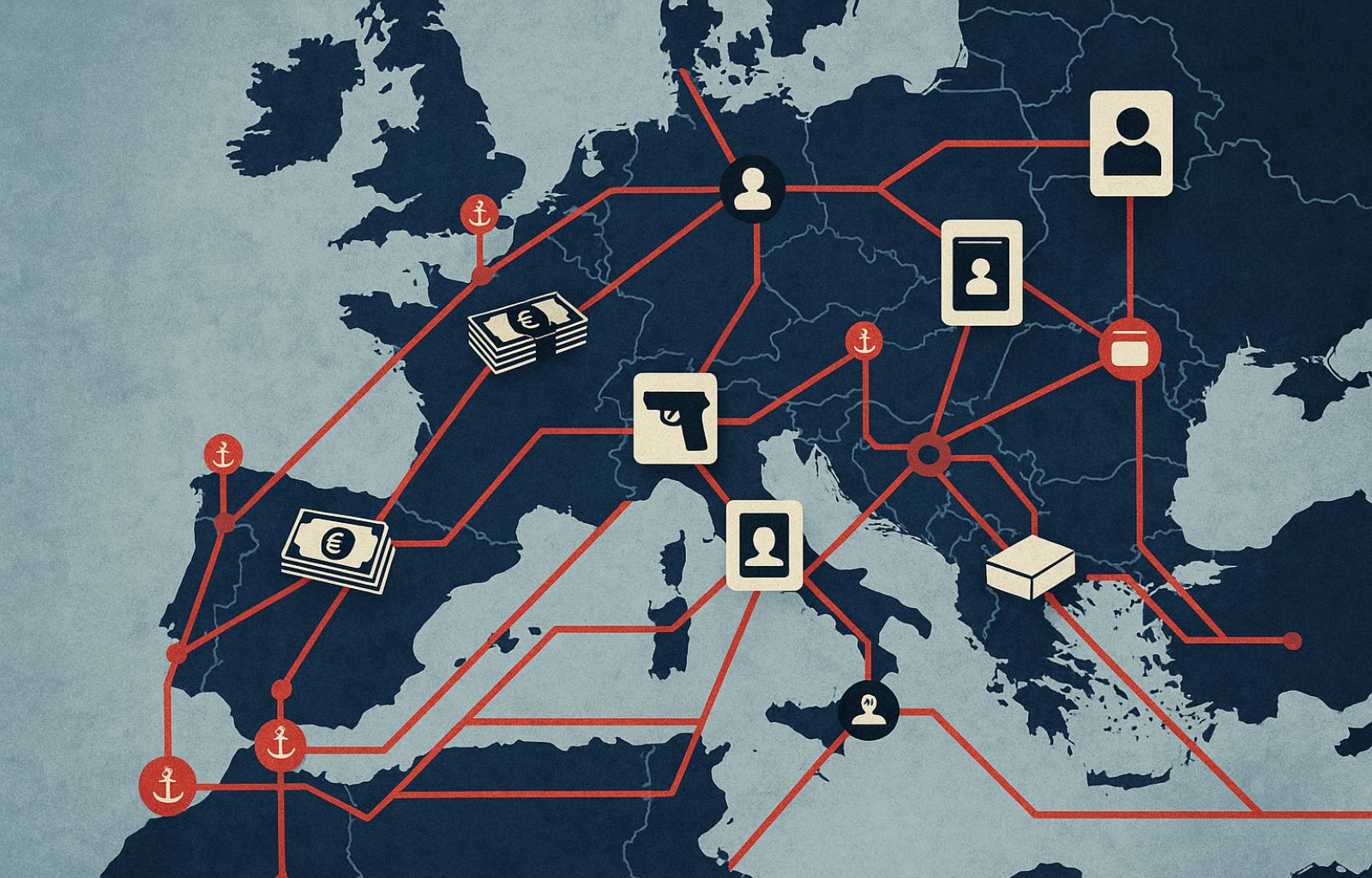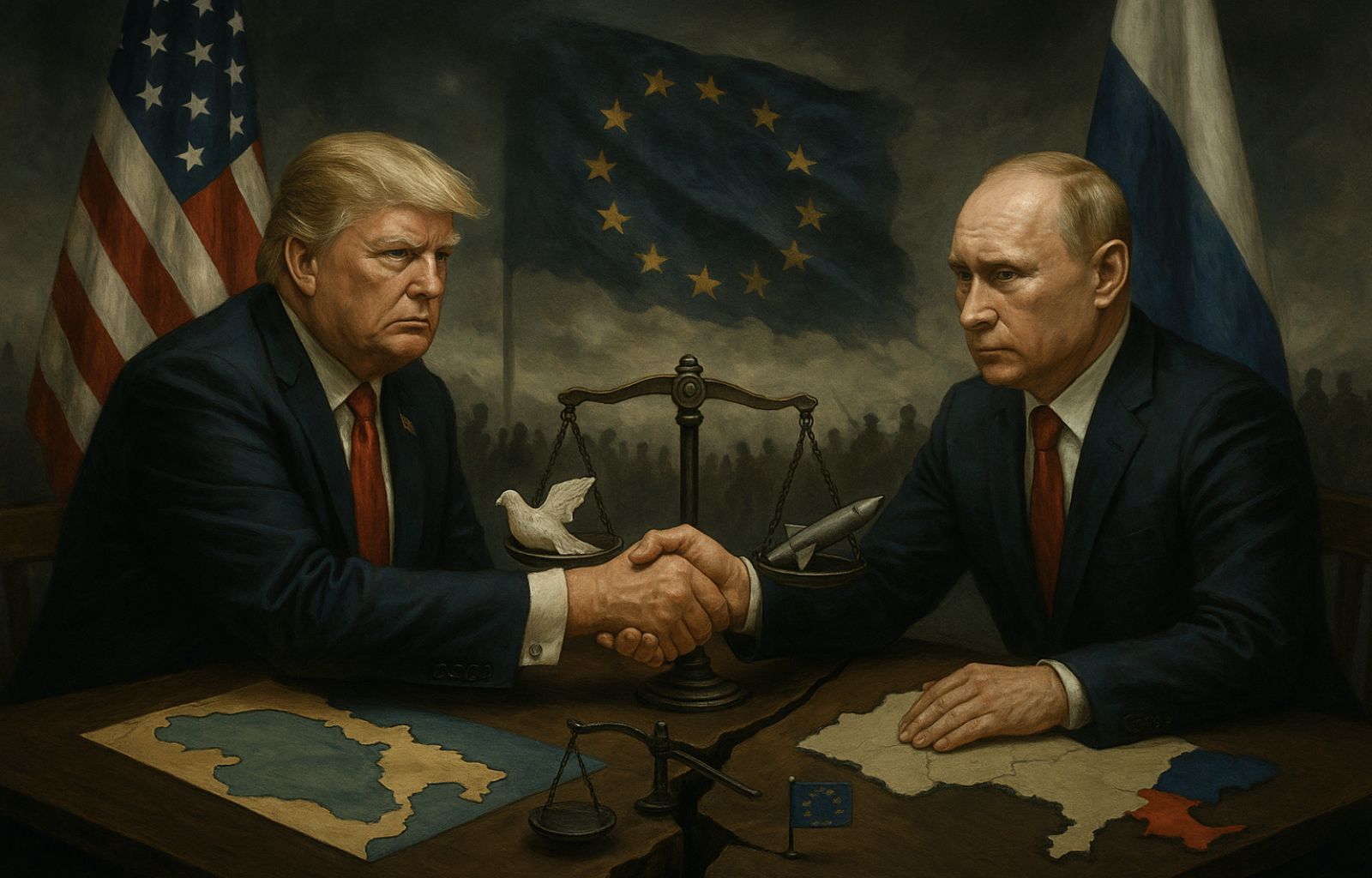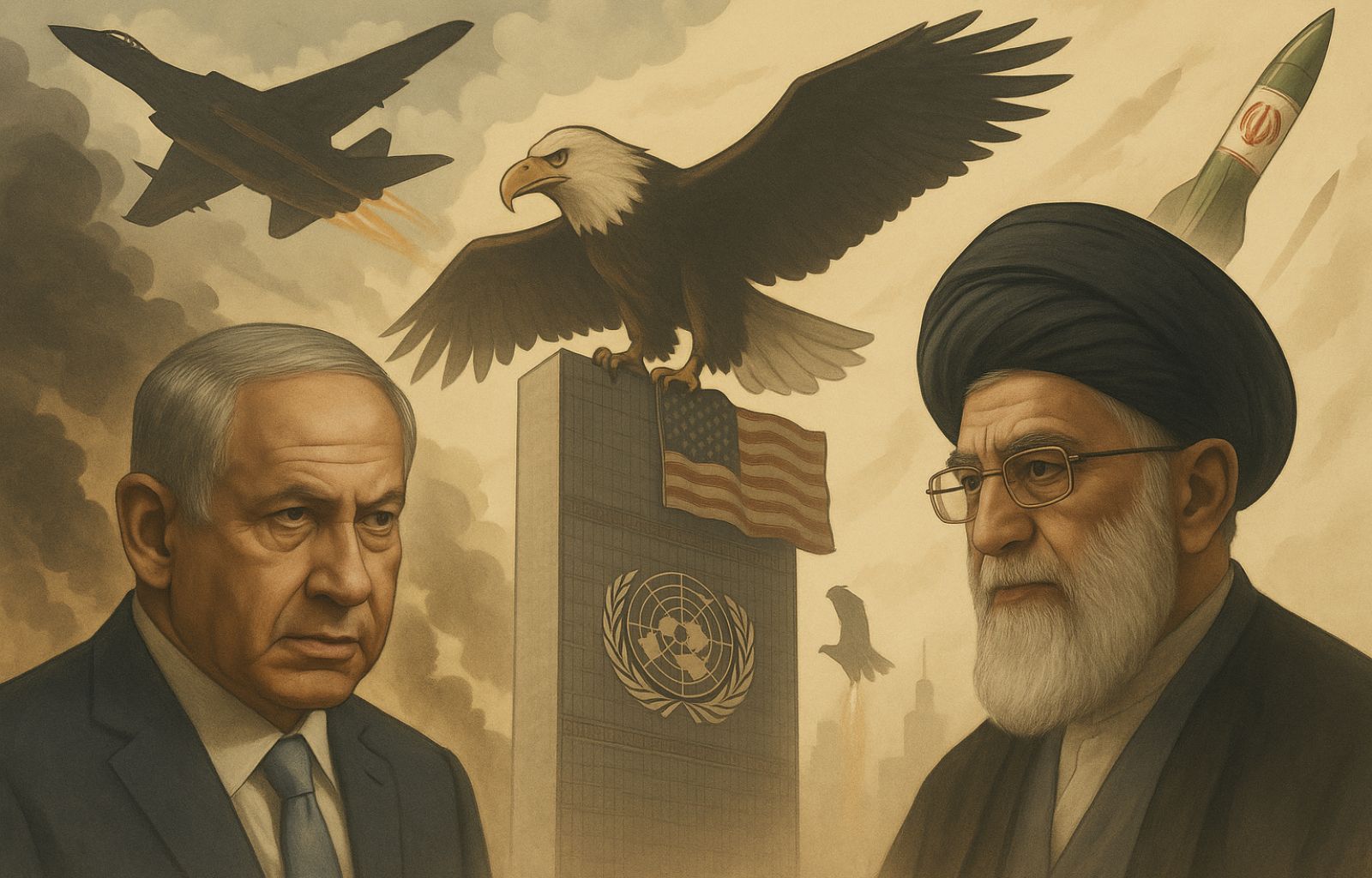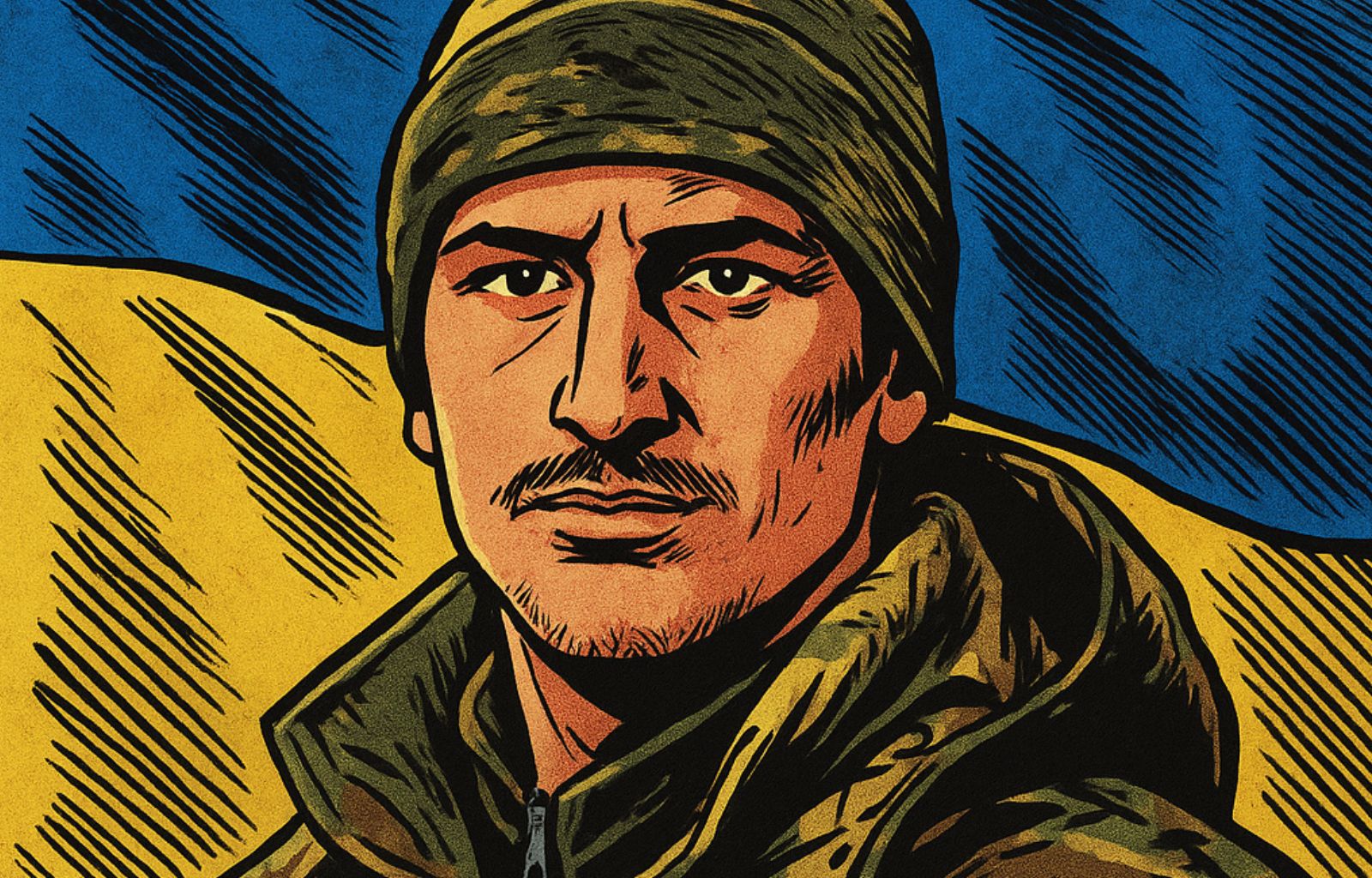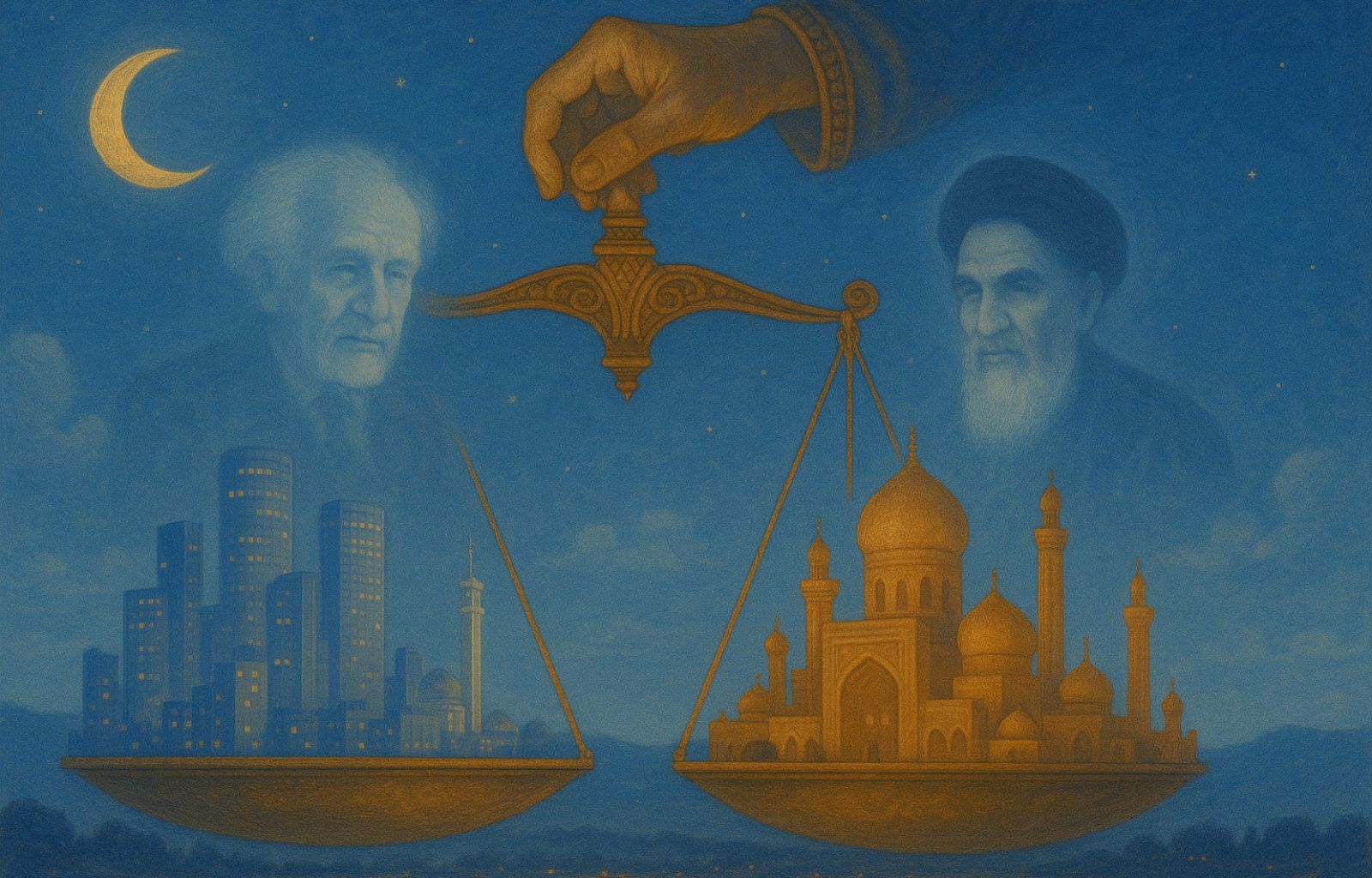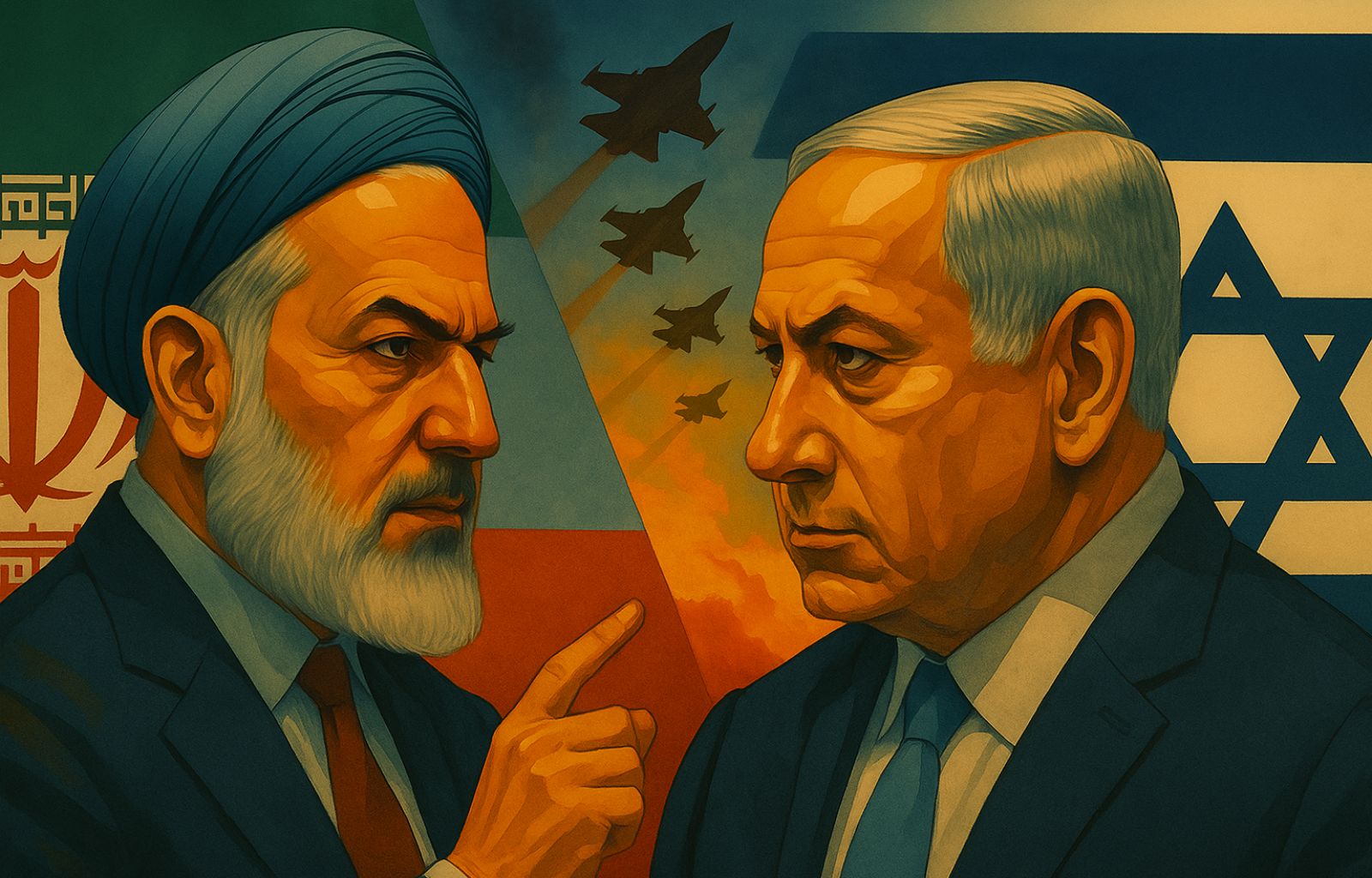Slow surrender: how Putin is folding the West without negotiating
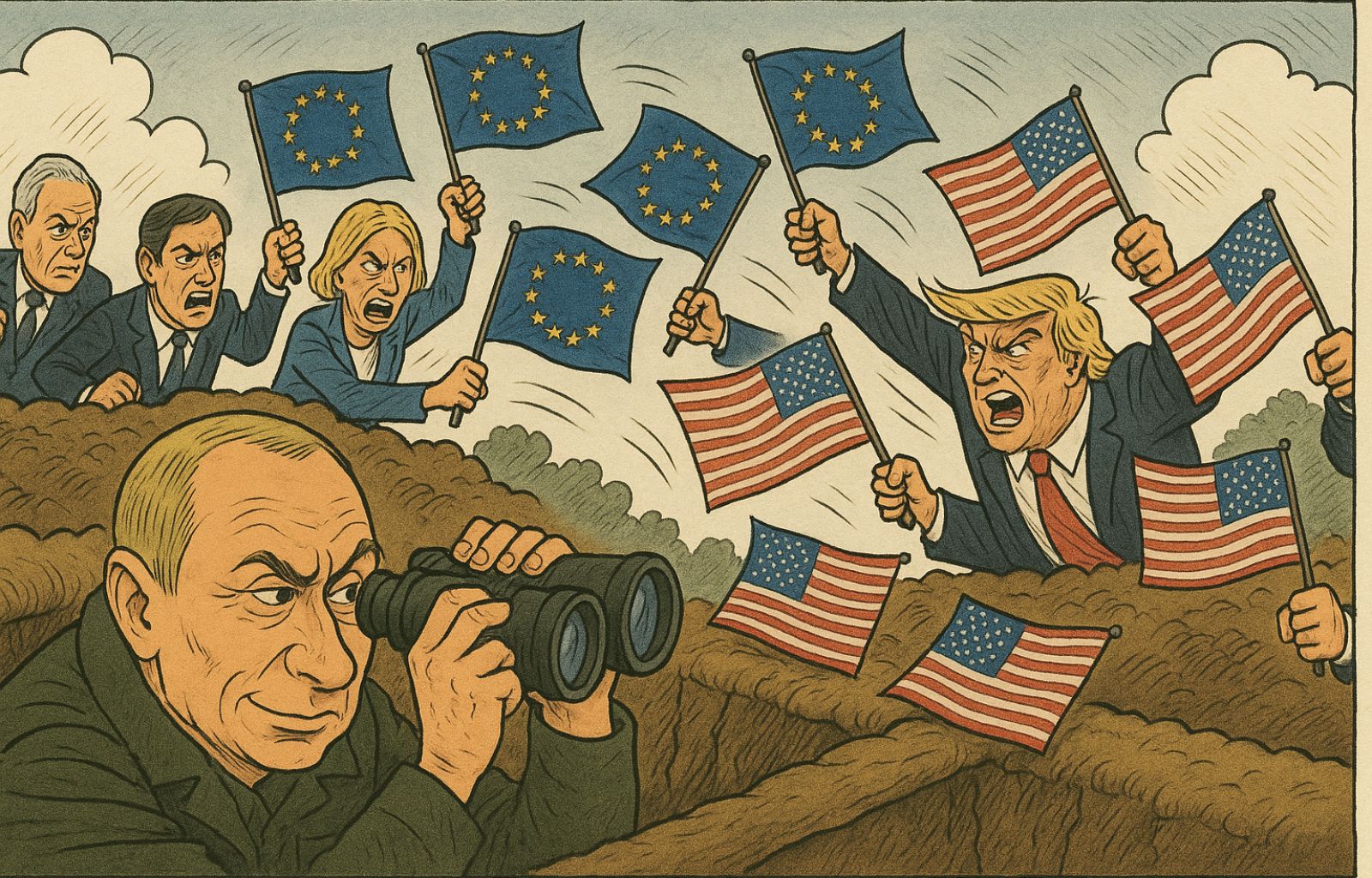
The conflict in Ukraine has now become the mirror of a geopolitical transition that redefines not only the military balance on the ground, but also transatlantic power relations and Europe ‘s ability to conceive of itself as an autonomous strategic actor. More than three years after the large-scale invasion, it is increasingly evident that the Russian Federation – under the leadership of Vladimir Putin – has only one outcome in mind: a strategic victory, even at the cost of paying a very high human and military price.
This perspective is consolidated in a context in which the United States is showing signs of selective disengagement, constrained by industrial limitations, domestic political choices and a global agenda that can no longer concentrate unlimited resources on the European front alone. Even Donald Trump himself, while maintaining a rhetoric of conditional support for Kyiv, has signalled the priority of preserving American strategic stocks and rebalancing Washington‘s global posture, leaving Europe to grapple with the reality of less and less guaranteed support.
At the same time, theEuropean Union and NATO are experiencing a phase of strategic ambiguity: declarations of firmness and solidarity continue to follow one another, but real support – military, economic and political – is becoming more fragile and more conditioned by internal logic. The absence of genuine strategic autonomy proves dramatic just as Russian pressure grows at the borders and the Kyiv leadership demands a commitment that is not symbolic but material, structural, and sustainable over the long term.
In this framework, the risk is not only that of a Ukrainian military defeat on the ground, but of a collective strategic failure of the West, which could see the Putin model of power reaffirmed: calibrated use of force, ability to sustain wars of attrition, control of domestic public opinion and exploitation of others’ divisions. A Putin victory, even a partial and territorially limited one, would mark a devastating precedent for European security and for the credibility of Western deterrence.
This article aims to analyse in depth the reasons and consequences of this scenario. We will examine on the one hand Putin‘s strategy, determined not to negotiate on anything that does not sanction his terms, and on the other hand the gradual American detachment and the crisis of European cohesion that are, in fact, handing the Russian autocrat the leverage to redefine the continent’s security order.

The logic of Putin diplomacy: negotiate without conceding
To truly understand Vladimir Putin ‘s strategy in the war in Ukraine, one must accept a premise: negotiation is not an alternative to war for Moscow, but a functional tool of it. Russian diplomacy does not aim at an equal compromise, but at imposing its own conditions masquerading as peace proposals. It is a practice that intertwines military coercion, strategic propaganda and manipulated negotiation.
The recent phone calls between Putin and leaders such as Donald Trump and Emmanuel Macron are a prime example. Every diplomatic dialogue is used to reiterate a rigid position: no renunciation of the stated objectives of the ‘special operation’, no territorial concessions, no recognition of Ukraine as an independent Western ally. Moscow insists on the concept of ‘root causes’ of the conflict, which translated means: Ukraine must accept a neutral, unarmed and subordinate status to the Russian sphere of influence.
In this strategy, negotiation serves multiple purposes:
- Legitimise its position in the eyes of the international community, presenting itself as a reasonable party ready for dialogue;
- It divides the Western front, exacerbating differences between those who want to continue supporting Kyiv unconditionally and those who fear escalation;
- Gain military time by consolidating lines on the ground and preparing local offensives.
This coercive diplomacy is an established feature of post-Soviet Russian foreign policy. Over time, Russia has refined a hybrid warfare model that alternates between conventional force, information warfare and instrumental negotiation. In the cases of Transnistria, Abkhazia, South Ossetia, and especially Crimea and Donbas, Moscow has shown that it knows how to freeze conflicts for years, turning military occupations into politically accomplished facts.
The Russian narrative plays a decisive role in this strategy. Every diplomatic opening is accompanied by a discourse constructed with great semantic care: just peace, root causes, denazification, protection of Russian-speaking populations. Vague, deliberately interpretable terms that give Russian diplomacy room for manoeuvre and domestic propaganda arguments to justify the war as necessary and defensive.
The use of diplomacy as an instrument of war also manifests itself in the choice of interlocutors. With Macron, Putin presents himself as a statesman open to dialogue, crediting France as a privileged partner and exploiting France’s historical ambition to lead European diplomacy. This weakens the perception of a monolithic Western front and reinforces the Russian narrative of a divided Europe unwilling to make strategic sacrifices.
With Trump, the logic is even more subtle. The US administration has already signalled a significant slowdown in military support for Kyiv, officially due to the need to replenish US strategic stocks. Trump himself has declared that he wants to ‘help’ Ukraine but only within the limits of American possibilities. Moscow reads these words as a sign of strategic fatigue and an open door to at least a neutralisation of US support.
Continued military pressure on the ground is the second pillar of this diplomacy. While cordial phone calls are held and glimmers of dialogue are evoked, the Russian military continues to concentrate troops along the most vulnerable sectors of the frontline, such as theSumy oblast, threatening local offensives capable of wearing down Ukrainian forces and altering Western calculations. This strategy ‘parallel’ to the negotiations is what Russian military doctrine defines as controlled escalation: the threat of escalation serves not only to discourage more massive Western aid, but also to condition the very terms of an eventual agreement.
The domestic factor should not be overlooked. Putin enjoys an established consensus in Russian society, fuelled by a campaign of patriotic mobilisation that has normalised war as an ‘existential defence’ against the West. The Kremlin’s ability to recruit hundreds of thousands of soldiers without declaring a general mobilisation demonstrates the success of this narrative. Domestically, every victory – even partial – on the external front strengthens Putin’s personal power and the legitimacy of his regime.
Finally, Russian diplomacy aims at a broader goal: redefining the European security order. Moscow is not negotiating to return to the status quo ante 2022. On the contrary, it seeks to consolidate a new equilibrium that recognises Russia’s sphere of influence over large portions of the post-Soviet space, imposing concrete limits on NATO expansion and reducing theEU ‘s ability to project stability to the east.
This strategy feeds on Western weaknesses: the short-term political calculus, the difficulty of sustaining the military and economic effort over the long term, the rift between public opinion and strategic elites, and competition from other global priorities such as theIndo-Pacific.
In short, Putin diplomacy is a weapon of strategic pressure. It is not designed to bring about a shared peace, but to force the adversary to gradually yield. And until the West understands the nature of this logic, it will continue to delude itself that negotiation is a path to stability, when in reality it is just another battlefield.

American disengagement and the European impasse: between strategic cynicism and moral crisis
In the landscape of international relations, diplomacy is not just a technical negotiation, but a codified form of strategic communication. In this sense, the Trump era – albeit with its more recent variants – has consolidated a practice of performative diplomacy, which moves between media theatrics and the search for domestic consensus.
The Trumpian method relies on a double track: maximum pressure and spectacularisation of the dialogue. Whether in the form of publicised phone calls at press conferences, bilateral summits staged as geopolitical reality shows or bombastic declarations about ‘making the deal’, the constant feature is the transformation of negotiation into a communicative event.
But this style encounters structural limits when confronted with actors who do not wish to participate in the same semantic game. It is here that the case of Vladimir Putin is emblematic. Over the years, the Russian president has refined his own negotiating strategy made up of controlled ambiguity, calibrated escalation on the ground, and above all a willingness to bear human and material costs that his democratic – and therefore electorally judged – interlocutors find hard to justify.
The Trumpian bluff only works if the other actor agrees to sit at the table with the idea that there is a possible and negotiable agreement. If, on the other hand, as in the Russian case, the interlocutor has only one acceptable outcome in mind – the complete satisfaction of its own conditions – then performative diplomacy becomes empty. It becomes an act for the American domestic audience, but loses all capacity to affect the real strategic equilibrium.
The Trump-Putin phone call, commented on by Washington in terms of ‘no progress’ and by the Kremlin as a reaffirmation of Russian objectives, is a plastic demonstration of this failure. Not only is there no substantive negotiation, but the communication context is fragmented into two parallel narratives: the American one, focused on its own electorate, and the Russian one, focused on consolidating internal consensus and the message of strength towards Ukraine and Europe.
Alongside this crisis of method is a second, deeper fault: Europe’s moral and strategic fragility. In recent years, NATO – and the European Union in its wake – have progressively agreed to become rhetorical instruments of US domestic policy. Allies are being asked to raise military spending to 5 per cent of GDP not so much for a coherent strategic project as to allow the American president to boast of having ‘brought the Europeans in line’.
In this context, the Ukraine crisis proves to be a deadly test case. On the one hand, Europe talks of strategic autonomy, on the other it delegates its security to a power that alternates between demands for financial commitment and declarations of disengagement. The recent American suspension of military supplies to Kyiv, justified by the scarcity of available defence systems and the need to reserve them for American national security, is an unmistakable sign.
This is not just about logistics. It is a political message: if Europe really believes that the stability of its eastern border is vital, it must start supporting it with its own means. But is Europe capable of doing this? To date, the answer is dramatically negative. The lack of political cohesion, the divarication of national interests, and the difficulty of building a public consensus on a massive increase in military expenditure make the Union an actor essentially incapable of sustaining a sustained and autonomous commitment.
The risk is that, faced with American fatigue, Europe will gradually bow to Russian conditions, not declaring it openly, but simply allowing Kyiv to be strangled by a slow reduction in support. This is the strategy of logistical suffocation: no surrender treaty is signed, but arms and funds are no longer sent in an adequate measure.
Granting a strategic victory – even a partial one – to Putin would have disruptive consequences. It would prove that armed force is a legitimate tool for resolving territorial disputes in Europe. It would send a devastating signal to other revisionist actors in the European and global neighbourhood. It would reinforce the narrative that liberal democracies no longer have the political will or moral cohesion to defend their principles.
American performance diplomacy, with its structural limitations, and the European moral crisis are intertwined in this scenario. While Putin plays a long-term game, backed by an armoured domestic consensus and a repressive apparatus capable of absorbing high costs, the West risks proving to the world that the rules of international law only apply as long as they do not cost too much.
And this, more than any map or treaty, is what really defines the strategic posture of a power system. In this sense, the war in Ukraine is not just a question of borders: it is the battle over whether brute force can still be considered an acceptable method of international crisis resolution. A battle that, if lost on the field of support and political coherence, will need no official declaration to be ratified.
Between emptied diplomacy and redefinition of power
The Ukrainian crisis is no longer just a regional conflict: it is a test of the West’s strategic resilience and the credibility of the international system built after 1945. What is happening today on the Sumy front or in Putin’s rhetoric is not just about Kyiv: it defines the contours of a new global equilibrium, in which the use of military force and the ability to bear the political costs of war once again become criteria of power.
The United States, engaged in a reset of strategic priorities, shows the fragility of an approach based on performative diplomacy and spectacular communication. The phone call between Trump and Putin – devoid of any real progress – is the symbol of a method that only works when all parties agree to play on the same narrative ground. When faced with an actor who is determined to impose his own non-negotiable terms, ‘deal’ diplomacy is emptied of meaning.

Europe, for its part, shows the difficulty of transforming its ambition for strategic autonomy into a coherent policy. Suspended between American dependence and internal dissonance, it risks being a passive witness to a gradual suffocation of Ukraine. An undeclared but substantial surrender, which would legitimise the use of military coercion as an instrument of foreign policy in Europe.
Within this framework, Putin is not looking for compromise: he is aiming to prove that only force – exercised and supported without hesitation – guarantees results. If the West accepts this logic, either by declaring it or simply letting it happen, it will send a signal far beyond Ukraine. A message that will be received by Moscow, Beijing and every revisionist actor: borders, rules, sovereignty are only negotiable according to the balance of power.
The real risk is not the military defeat of Kyiv. It is the moral and strategic surrender of the West. A silent but devastating renunciation of the claim to establish shared rules for conflict management. Because in diplomacy, as in war, the greatest victory is to impose its own terms of legitimacy. And this is what is at stake today, in the heart of Europe.

